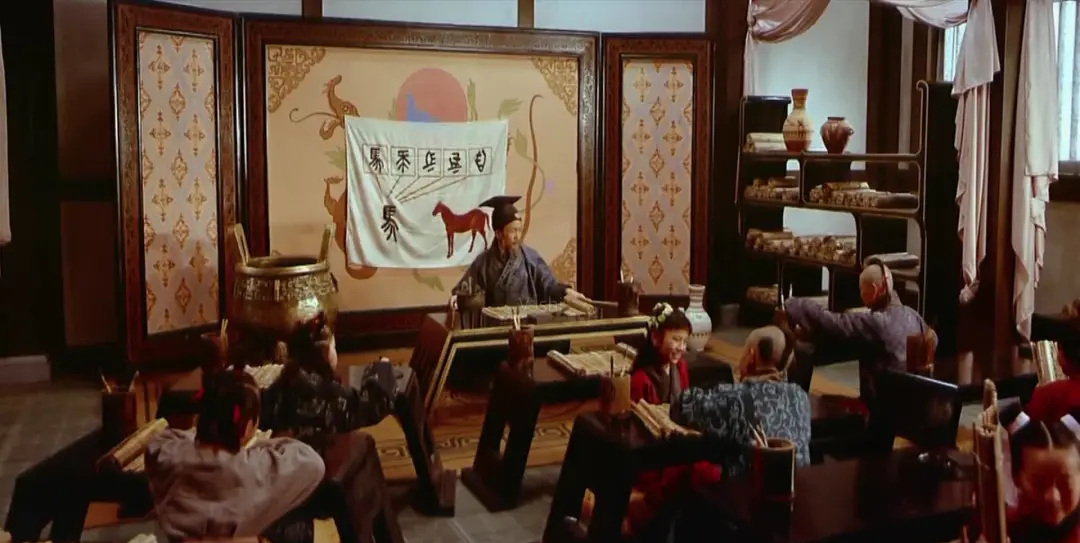He Zong (1392-1453), courtesy name Zhizong, was a Ming Dynasty official of Xiangxiang County (present-day Yintang Township, Shuangfeng County).
The He Zongsheng family is the Xiangxiang Wang clan. He was diligent and studious since childhood, brilliant, and poetic, and was praised by his fellow fathers and elders. In the eleventh year of Ming Chengzu Yongle (1413), Hezong was elected to Yiyu and concentrated on his studies, he liked to go to the door to ask the elders of the village for advice, and it was inevitable that he would miss class in the museum, and the teacher was angry that he was not subject to the rules of study, and reported to the government to remove his name. Fu Ti interrogated the question, but He Zong was able to state his daily homework one by one. The government official rebuked his teacher: "This sub-discipline is like this, and er is based on ordinary laws, which can be said to be unknown to people." In the fourth year of Emperor Xuanzong's reign (1429), He Zong took the township examination and ranked 34th in the middle; the next annual meeting examination, the 13th jinshi of the third class, Yan Yu, the chief bookkeeper of Xiangxiang County, set up a "jinshifang" for him at the gate of the residential Shiqiao, and built a library in accordance with the order, "reading is its grandeur".

In the eighth year of Xuande (1433), Emperor Hezong entered the capital, and the following year he was appointed as the right commentator of the Left Temple, the Grand Governor of Nanjing. In the tenth year of Xuande (1435), he was dismissed by routine and was elected by the officials. In the summer of the first year of Ming Yingzong's orthodoxy (1436), Xiangxiang County suffered a once-in-a-century flood, especially in The hometown of Emperor Hezong, due to flash floods in the mountains of Lotus Leaf Copper Liang and other places, "the dead have nowhere to find their bodies, and the living have no land to cultivate." The villagers sent He Rong, the younger brother of Emperor Hezong, to Beijing to complain. He Zong "when he heard this, he did not feel that he beat his chest and stomped his feet, and wept bitterly." In order to "complain to the imperial court about the flood and save the troublesome", He Zong "cut through the heart and drain the blood", with thousands of words of "Playing The Reduction of Xiang Fu Shu", and asked for the lives of the victims. At his request, Xiangxiang's tax has since been reduced by 4,000 stones per year (ming taizu Zhu Yuanzhang obtained Chen You's forgiveness of the grain book when he pacified the world, and learned that Xiangxiang had twice exported 108,000 stones of grain to Chen Bu, so he levied the grain endowment of Xiangxiang Prefecture according to this amount, and changed it to silver according to the number. In this way, the Xiangxiang Prefecture Tianfu increased by more than 60,000 stones compared with the 33,000 stones in the Song and Yuan dynasties, which is the origin of the 400-year "fallen grain" case in the history of Xiangxiang). "Yi people are grateful for their virtue", so he changed the name of Qingshan Township in Xiangxiang County, where he belonged, to Pingshi Township, which was used until the birth of New China in 1949.
In July of the third year of orthodoxy (1438), He Zongben's father was buried and returned to his hometown. During his stay in the township, He Zong obeyed his father's will and moved from Tuqiao to Baimayuan (now part of Shiqiao Village, Yintang Township), where he founded Sheyu and his wife and son He Youzhong. In the sixth year of orthodoxy (1441), Emperor Hezong took up his post and took up his former post. In the spring of the fourteenth year (1449), a peasant revolt led by Ye Zongliu and Deng Maoqi broke out in the border areas of Zhejiang, Fujian, and Gansu, and the imperial court was "tired and dissatisfied", and He Zong's advice from Chen Fangluo, whose advice was deeply appreciated by Emperor Mingying, ordered him to go with the military department Shangshu Shipu to suppress the office. After a few swings, he was promoted to Taibu Temple with "gong" and divided into Chu Prefecture (滁州, in modern Chu County, Anhui), Anlai and other counties. He Zong's official was "clean and honest", which won the hearts of the people.
In November of the second year of Emperor Jingtai of the Ming Dynasty (1451), He Zong returned from Chuzhou on foot due to the death of his mother Hu Shi, and he saved up his silver for many years and hired craftsmen to build a dam in the river in his hometown to save the river water to prevent drought, and the people were grateful and named "Laoye Dam". After the funeral of his mother, Emperor Hezong was reinstated in the fourth year of Jingtai (1453). Unexpectedly, from Yongfeng to the Ancestral Hall of the Yellow Dragon King in Xiangtan, he suddenly fell ill and died on the boat. Gui buried Si Chong (now part of Songping Village, Yongfeng Town, Shuangfeng County), and his tomb still exists. His posthumous works are "He Commentary".
bibliography:
Compiled by the Local History Compilation Committee of Shuangfeng County, Hunan Province: Chronicle of Shuangfeng County, China Literature and History Publishing House, 1993 edition.
Note: This article is the original content of the public account, and it is forbidden to reprint it at will without the authorization of the account